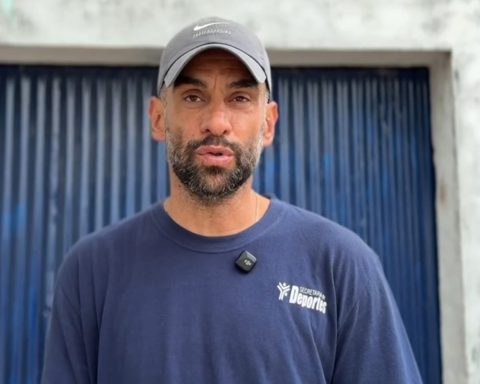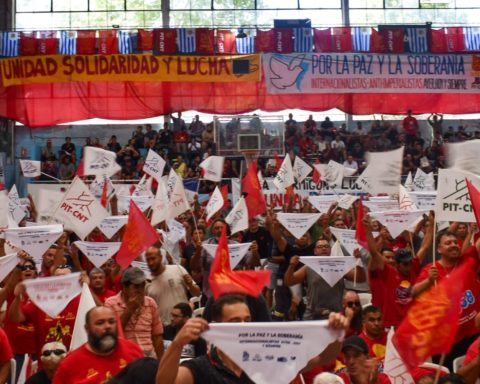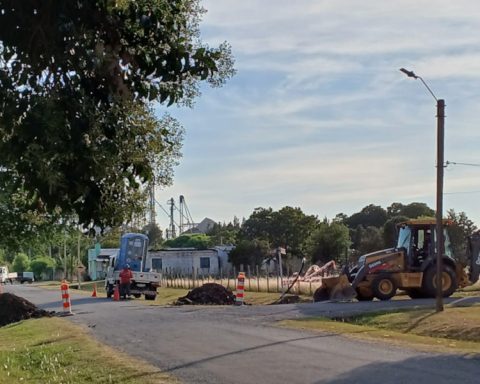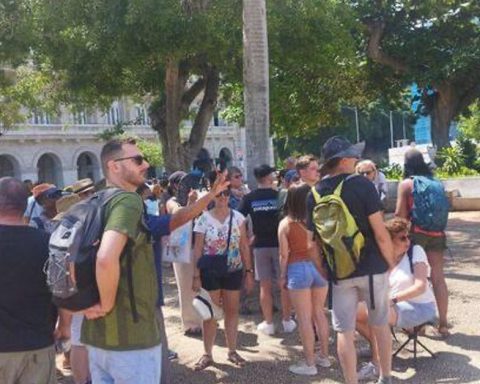The opening of the Expo Prado had a traditional activity this Friday. The Confederation of Business Chambers —made up of the main chambers, associations and business unions— held a conference entitled Time for opening and reforms, which had as speakers the ministers of the Environment, Adrian Penaof work, Paul Mieresand the president of the Central Bank of Uruguay (BCU), Diego Labat.
The opening was in charge of the president of the Confederation of Business Chambers, John Martinez. The executive had words of praise for the “excellent” management of the Luis Lacalle Pou administration during the pandemic, the signs that were given to attract investment or openness in international insertion, as well as the macro policy of “austerity” and ” savings” of public accounts, and more efficient management of public companies.
In any case, Martínez indicated that there are “structural reforms” that cannot be delayed and gave as an example the need to reduce informality in the economy, or the need to reduce current inflation levels because it is the “most expensive tax” and a “scourge” for business planning.
The other topic that was not lacking was the price of the dollar. Regarding this variable, the president of the confederation called for recovering the “exchange delay” that Uruguay is experiencing so as not to further compromise competitiveness in a scenario where the relevant commodities that the country exports have begun to weaken. Martínez warned that the structures of the companies are “affected” by the current price of the exchange rate. He said that they recently transmitted this concern to the economic team and that they received the answer that in the next two years that exchange lag “is going to recover.” “If we want to grow more, we must increase exports,” he said.
On the other hand, the executive called on the government to update collective bargaining, go towards a bipartite scheme and with more agile mechanisms, while valuing the draft presented by the government for the social security reform as a step in the right direction. as well as the educational reform that is expected to be implemented from 2023.
Some answers
Labat admitted that the current level of inflation at 9.5% in the 12 months is high and that Uruguay has a “structural problem” to continue attacking because that threatens a higher and more sustainable potential growth of the economy. “We need much lower inflation,” she remarked.
Regarding the exchange rate, Labat claimed the free float as the best alternative for a small and open economy like Uruguay’s. He recalled that last August 31 was the anniversary of the last intervention of the BCU in the foreign exchange market and that it is betting on market transparency so that the price of the dollar is determined by supply and demand.
Mieres, for his part, considered that this semester will be key to advancing in voting the changes to the Collective Bargaining Law to lift the ILO’s observations and was critical of the “unfounded” and “incorrect” accusations made by the PIT-CNT about that project. The Minister of Labor promised to update the structure of the Salary Councils with more groups, subgroups, “incorporate trays” and facilitate the procedures for picking up the agreements to address the heterogeneity of the companies. At the same time, obsolete job categories will be updated, but he confirmed that salary negotiations will continue to be tripartite “due to the cultural tradition” of the State’s presence.
Finally, the Minister of the Environment said that it was time to stop talking: “It is time to act” both in public and private policy. Peña asserted that climate change is already hitting Uruguay, and that today it is not enough to have carbon-neutral meat production if the refrigerators do not properly treat their effluents.


















